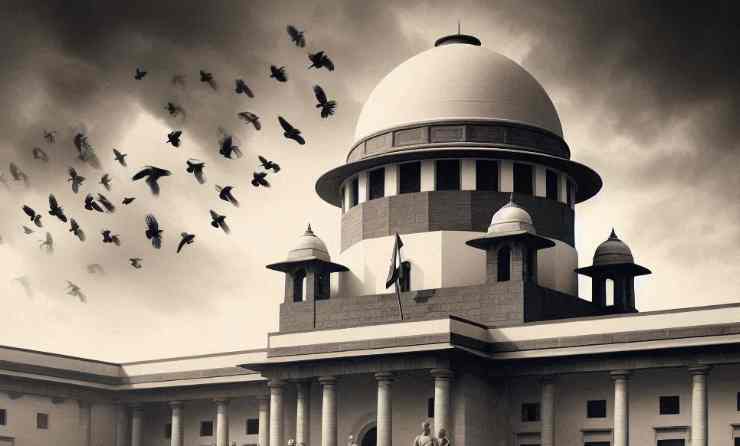New Delhi: The Supreme Court of India on Monday directed its registry not to accept black-and-white photographs as part of pleadings unless prior permission is obtained.
This decision was prompted by concerns over the submission of blurred and unclear images in legal documents.
A Bench comprising Justices Surya Kant and Ujjal Bhuyan emphasized the long-standing issue of litigants and lawyers submitting low-quality black-and-white photocopies, which often hindered the clarity of evidence.
The directive aims to ensure that only clear, legible photographs are accepted moving forward.
Court’s Concern Over Poor Quality Images
“We have been observing for quite some time that parties take full liberty in placing on record black-and-white photocopies of photographs, mostly which are blurred,” the Bench remarked.
“The registry is directed not to entertain hitherto any black-and-white photographs without prior permission of the Court,” the order stated.
The ruling was issued during a hearing on a land compensation and rehabilitation case from Daman and Diu, where such blurred images were submitted as evidence.
Previous Remarks on Misleading Photos
This is not the first time the Bench has expressed concern over photographic evidence in court pleadings.
On August 20, the same Bench had voiced its dissatisfaction with misleading images taken from mobile phones and hastily appended to pleadings. Justice Surya Kant had warned that the Court would take strict measures against such practices.
“Mobile se photo liya aur annexure mei laga diya (you took a photo from a mobile and simply attached it in an annexure),” Justice Kant remarked, further hinting at potential penalties for lawyers who continue to submit unclear images.
He had even suggested that advocates guilty of such practices might face suspension or revocation of their licenses.
This directive reinforces the Supreme Court’s focus on ensuring the accuracy and integrity of evidence in legal proceedings.
Case Details
- Parties Involved: Savita Rasiklal Madan and Another v. Union of India and Others
- Bench: Justices Surya Kant and Ujjal Bhuyan















